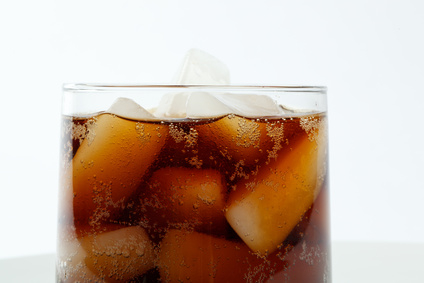In 2009 diet soda sales soared over $8.5 billion for the first time. But their popularity is now past its peak. Since 2010 diet soda sales have fallen by 20%, and this year diet soda is projected to drop another 5%.
Apparently Americans (and people worldwide) are becoming increasingly aware of the dangers of artificial sweeteners, even though the American Beverage Association continues to reassure us that they are safe. As more and more research is released, people have become more cautious about their consumption of sweeteners in general.
So how did diet soda become so popular? It’s probably in part due to the thought that fewer calories in equals weight loss. Sadly, many consumers mistakenly believe that if they consume zero-calorie drinks, it will help them reach their weight loss goals. Many even think they’re making healthier choices; but sadly, the opposite is true.
Calorie-free does not equal healthy.
If anything, diet soda makes people fat.
Say WHAT??
Because humans are hard-wired to prefer the taste of sweet (it’s believed this was our way of protecting ourselves from things that were poisonous), we naturally gravitate towards sweeter foods. When we eat sugar we experience the sweet taste in our mouth, and our body responds by releasing the hormone insulin (our fat storing hormone).
Obviously, too much sugar in any form is not in our best interest, but artificial sweeteners are proving to be worse. First, they contribute to insulin resistance and glucose intolerance, which causes the body to store visceral fat. And visceral fat (aka ‘belly’ fat) is associated with increased risk for cardiovascular disease, inflammation, and Type 2 diabetes.
Second, there is evidence that artificial sweeteners actually increase appetite and intensify cravings for other sugary and starchy carbohydrate foods, which when overconsumed ultimately lead to weight gain.
Another problem with diet soda is that it may also be addictive. Artificial sweeteners can be up to 600 times sweeter than cane sugar but surprisingly, they actually are LESS satisfying than natural sugars, which may explain why the body continues to crave more of it (because the body never got its needs met in the first place). So it’s no surprise that those who do drink diet soda typically consume an average of three drinks per day, and as you can imagine it really is hard to have just one.
Between the mindset that diet drinks are good choices (zero calorie) and the overstimulation of sweet receptors by artificial sweeteners, diet soda drinkers often struggle with their health and weight. In addition to contributing to insulin resistance, increased hunger, and its addictive nature, artificial sweeteners can cause the taste palate of diet soda drinkers to become less sensitive to normal food flavors.
This probably explains why many develop a dislike for the taste of whole foods. Sadly, a diet low in whole foods can lead to malnourishment and obesity. (Yes, most people who are overweight or are malnourished! They keep eating because the body continues to ask for more food hoping it will eventually get the nourishment it needs, but it usually doesn’t.)
Perhaps the makers of diet sodas (and other diet beverages) originally had good intentions when they wanted to help people enjoy zero-calorie drinks that tasted sweet, but the evidence continues to mount that diet products just aren’t good for you.
Unfortunately, diet soda isn’t the only consumable product containing artificial sweeteners. Beware if you come across any labels with the words “diet” or “sugar free” because they are also likely to contain artificial sweeteners (including gum, candy, ice cream, yogurt and other processed foods).
So unless you’re interested in slowing down your metabolism, gaining weight, becoming diabetic, or developing cardiovascular disease, you probably want to steer clear of all artificial sweeteners or any products containing saccharin, aspartame, acesulfame, neotame, and sucralose.
Resources:
http://time.com/3746047/diet-soda-bad-belly-fat/
http://articles.mercola.com/sites/articles/archive/2011/07/21/are-diet-sodas-making-you-fat.aspx
http://articles.mercola.com/sites/articles/archive/2015/04/08/diet-soda-weight-gain-cancer.aspx
http://articles.mercola.com/sites/articles/archive/2011/03/16/new-report-shows-how-you-get-addicted-to-diet-soda.aspx
Disclaimer:
All content on this website is for educational purposes only. Always discuss any dietary modifications, dietary supplement use, or adjustments in dosages of any prescription medications with your doctor.

